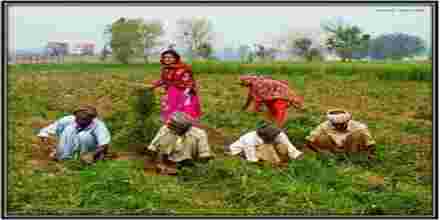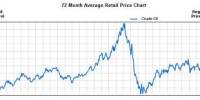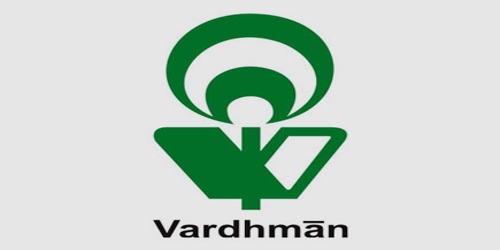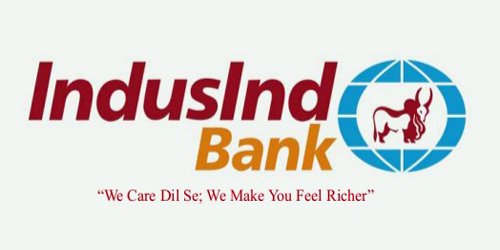How the Government can Maximizes Agricultural Income Tax
Introduction
Agriculture is the cultivation of animals, plants, fungi and other life forms for food, fiber, and other products used to sustain life. Agriculture was the key implement in the rise of sedentary human civilization, whereby farming of domesticated species created food surpluses that nurtured the development of civilization. The study of agriculture is known as agricultural science. Agriculture is also observed in certain species of ant and termite.
Most Bangladeshis earn their living from agriculture. Although rice and jute are the primary crops, wheat is assuming greater importance. Tea is grown in the northeast. Because of Bangladesh’s fertile soil and normally ample water supply, rice can be grown and harvested three times a year in many areas. Due to a number of factors, Bangladesh’s labor-intensive agriculture has achieved steady increases in food grain production despite the often unfavorable weather conditions. These include better flood control and irrigation, a generally more efficient use of fertilizers, and the establishment of better distribution and rural credit networks. With 35.8 million metric tons produced in 2000, rice is Bangladesh’s principal crop
Crops or trees of spontaneous growth in forests or any other places where there is no human effort, is not consider as agriculture. As per the various provision of OTI, 1984, generally income generated from any land situated in Bangladesh or from any other assets used solely for agricultural purposes is consider as agricultural income.
Scope of agricultural income
- Any income derive from any land in Bangladesh and used for agricultural purpose-
- By means or agriculture; or
- By the performance of any process ordinarily employed by a cultivator to render marketable the produce of such land; or
- By the sale of the produce of the land raised by cultivator in respect of which is no process , other than the render the produce marketable, has been performed; or
- By getting a right to any person to use the land for any period; or
By income derive from any building which-
- Is occupied by the cultivator of any such land as is referred to in sub-clause
- In which process is carried on to render marketable any such produce aforesaid;
- Is on, or in the immediate vicinity of such land; and
- Is required by the cultivator as the dwelling house store house or other out house by reason of his connection with such land.
From this above definition we easily understand that any income derived from any land or building in Bangladesh that are used for agricultural purposes will be consider under the head ‘’Agricultural Income”.
Classification of Agricultural Income
Agricultural income can be classified into following categories:
- Fully agricultural income
- Partly agricultural income
- Other agricultural income
Fully agricultural income
The following incomes are fully considered as agricultural income.
- Any income derived from any land and building situated on the land in Bangladesh used for agricultural purposes
- Gain from the sale of machinery or plant exclusively used for agricultural purpose
- Compensation money received against demolished machinery or plant exclusively used for agricultural purpose.
Partly agricultural income
The following incomes are partly considered as agricultural income.
Income derived from sale of tea:
- 40% of such income was derived from business and
- Other 60% income was considered as agricultural income
Income derived from sale of rubber:
- 40% income will be considered as business income
- And other 60% income will consider as agricultural income.
According to the income tax ordinance 1984.
Income from sugar mill and tobacco:
Unlike income from tea garden and rubber garden , income from sugar mill and tobacco is also consider as partly agricultural income if the both case the farmer and the manufacturer are the same person. So in both case ratio will be-
- 40% income will be considered as business income
- And other 60% income will consider as agricultural income.
Other agricultural income
In addition above sources of incomes, the following income are also considered under the head ‘’agricultural income’’
- Income from cattle rearing
- Income from sale of palm juice and Date juice
- Income from sale of seeds and grass, if growth by human effort
- Income from agricultural cooperative society which was organized for farming and cattle rearing
- Income from land or asset used for processing the agricultural commodities to make them marketable
- Income from land leased for agricultural purposes
- Income from any system of sharing of crop
- Income from sale of herbal or medical plant
- Income from cultivate flower and fruits
- Income from sale of honey if produced in agricultural land using special technology
Income from dairy farm, provided-
- Assessee is the owner of the cattle
- Cattle are rear in cattle rearing firm
- Milk is processed by the assesses
- Income from poultry farm if they are reared in agricultural land.
Admissible Expenses
Land development tax: Any land development tax or rent paid in respect of the land used for used for the agricultural purposes
Local tax: Any tax, local rate paid in respect of the agricultural land is subject to allowable deduction, provided that no such deduction is allowed if the tax is charged for any income arising or accruing from agricultural operation.
Production cost: the expenditure incurred for the following purposes-
- For cultivating the land or raising livestock thereon
- For performing any process ordinarily employed by a cultivator to render marketable the produce of the land
- For transporting the produce of the land or the livestock raised thereon to the market
- For maintaining agricultural implements and machinery in good repair and for providing upkeep of cattle for the purpose of cultivation, processing and or transportation as aforesaid;
Where the book of account in respect such account are not properly maintained, production cost will not be the amount claimed by the assessee rather it will be 60% of the market value of the produce.
- Insurance premium: Any sum pain as premium in order to effect any insurance against loss of, or damage to the land any crop to be raised from or cattle to be reared on the land
- Maintenance cost for irrigation plant: Any sum pain in respect of maintenance of any irrigation or protective work or other capital asset; and such maintenance includes current repair and in the case of protective dykes and embankments, all such work may be necessary from year to year for repairing any damage or destruction caused by flood or other natural causes.
- Depreciation: Depreciation expenses are relating to all the assets and facility from which agricultural income is derived as consider as allowable deduction.
- Interest on mortgage: Where the land is subject to a mortgage or the capital charge for the purpose of reclamation or improvement, the amount of any interest paid in respect of such mortgage or charge
- Interest on borrowing capital: Where the land has been acquired, reclaimed or improved by use borrowed capital, the amount of any interest paid in respect of such capital.
- Losses from the Sale of Demolished Machinery: Where any machinery or plant which has been used by the assessee exclusively for the agricultural purposes has been discarded, demolished or destroyed in the income year, the amount of losses from such destruction is allowable expense. But maximum limit of such are:
When no insurance or compensation has been received;
- Maximum limits = written down value – scrap value
When insurance or compensation has been received;
- Maximum limits = (written down value – scrap value) – amount of insurance or compensation money received.
Losses on sale or exchange of machineries: When any machinery or plant which has been used by the assessee.
Other expenses: any other expenditure, not being the nature of capital expenditure or personal expenditure lay out wholly and exclusively for the purpose of delivering agricultural income from the land is allowable.
Non- assessable agricultural income
- Agricultural income not exceeding fifty thousand taka (tk.50000) is non assessable for individual assessee.
- Income of an indigenous Hillman, if they income in their hill area.
- Another term is tax holiday. Any income from fisheries, poultry, production of seed, marketing of locally produced seeds, cattle farming, dairying farming, horticulture, frog farming, floriculture, from the first day of july, 2008 to the thirtieth day of july, 2011. In this period of time there is no tax for these above agricultural income.
How the government can maximizes agricultural income tax
From this above discussion we have understood that agriculture is the most important sector in the economy of Bangladesh, So, the contribution of tax of this sector should be very significant. But in Bangladesh is not collecting agricultural tax according to the expectation. Because, in Bangladesh has full of exemption in the sector of agriculture. So the government needs to take necessary step to maximize agricultural income. The governmental steps regarding agricultural income tax like-
A farmer gets the exemption Tk.50000 if he earn only from agriculture!!!
- For maximize the agricultural income tax, government can remove or reduce this above exemption. Because a person get exemption Tk.165000 according to the tax lair. So a farmer get the total exemption (Tk.50000+Tk.165000) = Tk.215000. It is one kind of inequality because farmers get the more tax benefit than other. So, if the government removes or reduces the exemption, the agricultural tax will be increased.
- An indigenous Hillman gets the full exemption if he cultivates in the hill areas!!!
- For maximize the agricultural income tax, the above exemption shod be stop. Because, as farmer he has got exemption Tk.215000, if he earns only agriculture. If he earns more than Tk.215000, so we can consider him as a rich man. So he needs to provide tax for contributing to the society.
- Tax holiday!!! (Any income from fisheries, poultry, production of seed, marketing of locally produced seeds, cattle farming, dairying farming, horticulture, frog farming, and floriculture, from the first day of July, 2008 to the thirtieth day of July, 2011. In this period of time there is no tax for these above agricultural income.)
- Tax holiday should be closed because if government wants to increase these above agricultural product, government can take many other steps which will be more effective like-providing load without or little interest, training, free seeds and fertilizer etc. Generally farmers will not think about tax before producing something. So the government should remove the tax holiday opportunity.
Other steps can be taken by the government!!!
Other steps can be taken by the government to maximize the agricultural income tax. These steps are given below-
- Farmers can show false sale amount of money which can reduce the tax amount. If government makes a rules and regulation that sales document must be needed to show the sales. So famer cannot provide any false sales document and maximize the agricultural tax.
- Government can make market in different place in Bangladesh where agricultural commodity will be sold with government approval document. This document will essential to show the sale of agricultural commodities. Thus agricultural income will be increased.
- The government can buy agricultural commodity from the farmers and then sales to the purchaser. In this case government will control the market of commodities and also can collect the tax properly.
- Government can reduce “the production cost percentage of farmer from 60% to 30% or less”. Because if the farmer have ability to maintain the book of accounts they do not do this due to high percentage (60%). If percentage is decreased the farmer will have to maintain books of account. Thus agricultural income tax can be increased.
- Government also provide training to the farmer for maintaining accounts of book instead of changing percentage (60%) and the government can show the benefit of maintain book of accounts to farmers. Like-easily understand the profit and loss of his cultivation.
Conclusion
Although Bangladesh is a agricultural country. Most of the people are engage with agriculture. But Bangladesh government does not get tax according to the expectation. From this above discussion we can understand that in Bangladesh there is lots of exemption in of its tax system. For example, a farmer gets the exemption Tk.50000 if he earn only from agriculture; an indigenous Hillman gets the full exemption if he cultivates in the hill areas; Tax holiday. Besides, there is lot of chance to avoid agricultural tax in Bangladeshi. For example, farmer do not need sale document to show sale and also get 60% production cost of sales if he/she does no maintain book of account which is very high amount that is why if a person has the ability to maintained to keep the account, he does not maintain it. Moreover, farmers have the intensity to avoidance tax. They are not conscious about tax. In the Bangladesh there are some farmers who do not know that agricultural income have tax. If the government wants to maximize the agricultural income tax they need to remove these above lankness.















